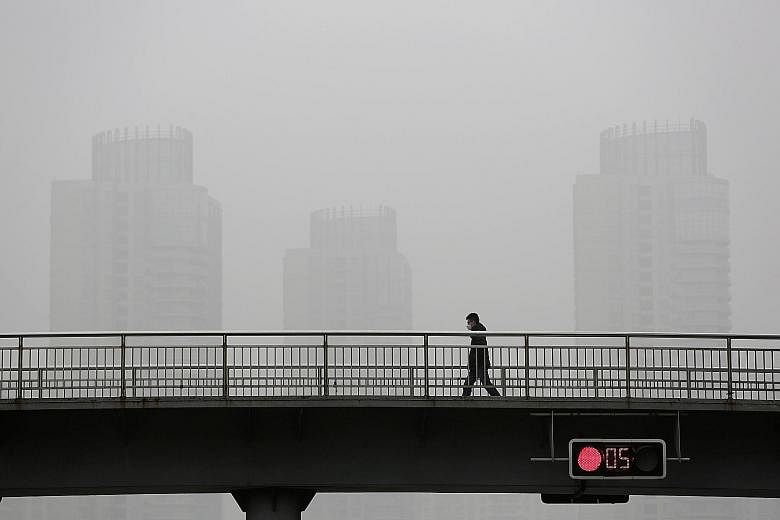When 54-year-old Lee Kok Cheong first discovered he had lung cancer early this year, he could not believe it. The regular runner did not smoke or drink, ate healthily and there was no family history of the illness.
"I kept trying to think why this could happen, when I've kept a healthy lifestyle," said the freelance consultant, who ran 10km every other day before his diagnosis.
He eventually speculated that it could be due to his frequent work trips to China, where the levels of smog in places like Beijing were high. He was also constantly surrounded by many Chinese counterparts who were heavy smokers.
-
HELPLINE
-
National University Cancer Institute, Singapore (NCIS) helpline at 6773-7888 or email ncis@nuhs.edu.sg
-
For further enquiries on lung cancer, please call the National Cancer Centre Singapore helpline at 6225-5655 or email cancerhelpline@nccs.com.sg.
Just one week after the operation to take out the nodule in his right lung, he started running again.
"It is at a slower pace than what I was used to. I will run 2km, then walk 4km. Doctors told me not to run so much, but I feel like I need to prove that I can overcome this," said Mr Lee.
He first experienced a sharp pain in his shoulder last September, and also felt breathless.
He was referred to the National University Hospital, where an X- ray showed two nodules in his left lung, and one in his right lung. A biopsy showed that it was cancerous.
Doctors diagnosed it as early stage, and decided to operate to take out the nodule in the right lung.
"It was a traumatic experience, and I was so confused. There were treatment options to think about, and what kind of foods I should be eating."
But he soon rallied and was determined to fight it.
He added: "I'm worried about the harmful effects of radiation, after so many X-rays and CT scans all these months. But, it is what it is."
"Now my strategy to fighting cancer is to boost my psychological defence, make sure I'm not in a harmful environment, eat healthy food and exercise."
Drug slows rate of lung cancer for some
A trial has shown that lung cancer patients with the epidermal growth factor receptor (EGFR) mutation fared better on second-generation drug afatinib versus first- generation gefitinib.
In Asia, the EGFR mutation is found in about 40 per cent of patients with non-small cell lung cancer.
About 85 to 90 per cent of lung cancers are non-small cell lung cancer.
Results from the LUX- Lung 7 trial announced by pharmaceutical company Boehringer Ingelheim in March showed that the risk of lung cancer progression in patients was reduced by 27 per cent.
More patients (27 per cent) were alive and their tumours did not grow further, when they were put on afatinib for 18 months, as compared to gefitinib (15 per cent). Over 24 months, it was 18 per cent versus 8 per cent.
Lead investigator of the trial, Professor Keunchil Park, explained how it works better than first-generation gefitinib.
"It blocks the signals of all EGFR receptors, therefore blocking the key pathways in tumour growth and spread," said Prof Park, who is director of the Innovative Cancer Medicine Institute at the Sungkyunkwan University School of Medicine in Seoul, South Korea.
In Singapore, the first immunotherapy drug for non- small cell lung cancer patients - which the EGFR mutation group belongs to - was approved by the Health Sciences Authority in April.
In trials, Opdivo led to a better median overall survival rate, compared to those on chemotherapy.
Find out more about cancer and how to fight it on ST's Fighting Cancer microsite.

